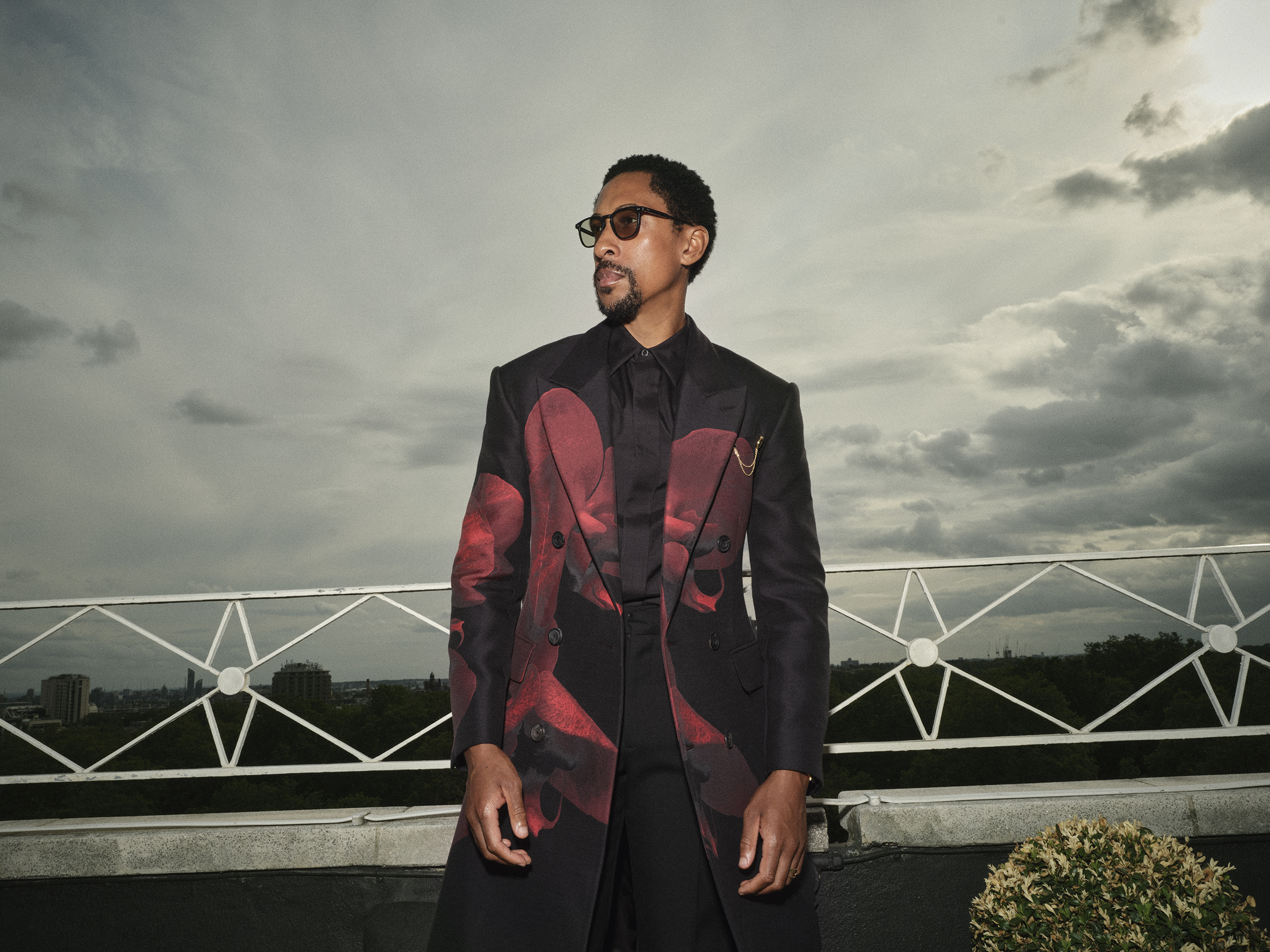When Larry Jackson was a child, New York’s fluctuating weather captivated him. Determined to understand why clouds release rain or how heat waves occur, he developed an interest in meteorology and its predictive powers. Jackson has always been interested in big forces of nature and how those forces could help him understand—and even manipulate—the future.
“My dad got me an apprenticeship at the National Weather Service in Redwood City,” Jackson says over the phone. He’s just taken a boat to Formentera from Ibiza, where he’d gone to catch David Guetta’s set the night before. “I was maybe nine years old—I had always [been] ambitious to get into the workforce at a really early age.”
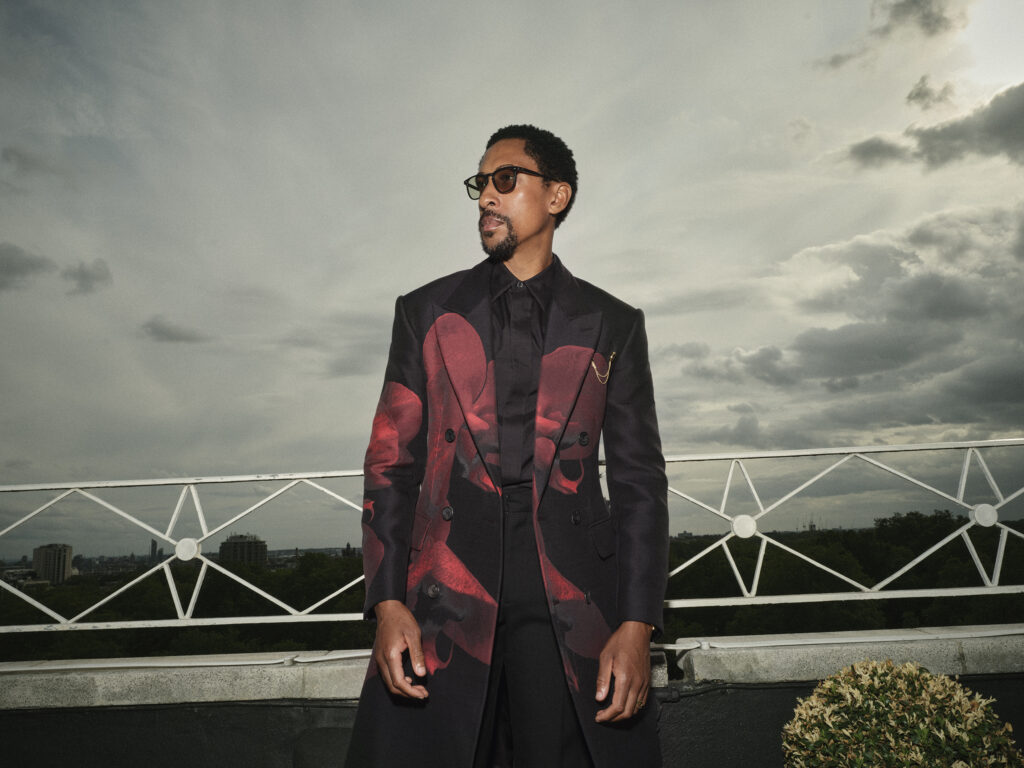
That doggedness has stayed with Jackson throughout his career. It’s what landed him his first real job in the music industry, when, after partaking in several radio show competitions, he was eventually invited to work for his local station. At only 17 years old, Jackson was practically running the place, showing up in his Catholic school uniform every day after class. There, he says, he “learned the creative science of what it takes to predict, make, and market a hit.” He got kicked out of high school for being spread too thin.
Though it’s been only two decades since then, Jackson has received more accolades than almost anyone in music. He served for seven years as Global Creative Director at Apple Music (which he helped launch), produced albums for artists from Whitney Houston to Jennifer Hudson, and, when Jackson was a bigwig at Interscope, signed Lana Del Rey. Over the course of his career, Jackson has manifested deals with everyone from Nicki Minaj to Drake to Frank Ocean. Now, Jackson’s bringing this wealth of varied experience to launch his own “ideas company,” gamma. Given that gamma has already signed Usher and Rick Ross and enjoys support from Apple, Jackson’s old corporate stomping ground, the multi-faceted business has an intriguingly bright forecast ahead.

But… what is it, exactly? Well, one thing gamma isn’t: A record label.
“Labels aren’t supporting the level of aptitude that is necessary for artists that endeavor to go into [various new] spaces,” Jackson says. While he gives labels credit for most of the music we’re currently hearing on the radio, he doesn’t see them work- ing with artists in the ways he plans to.“I was on a call the other day with Solange…I mean, she’s a Renaissance woman. Beyond. She’s doing the Brooklyn Ballet while also working with glass blowers and people designing furniture.” Jackson believes that artists are more than the music they make.
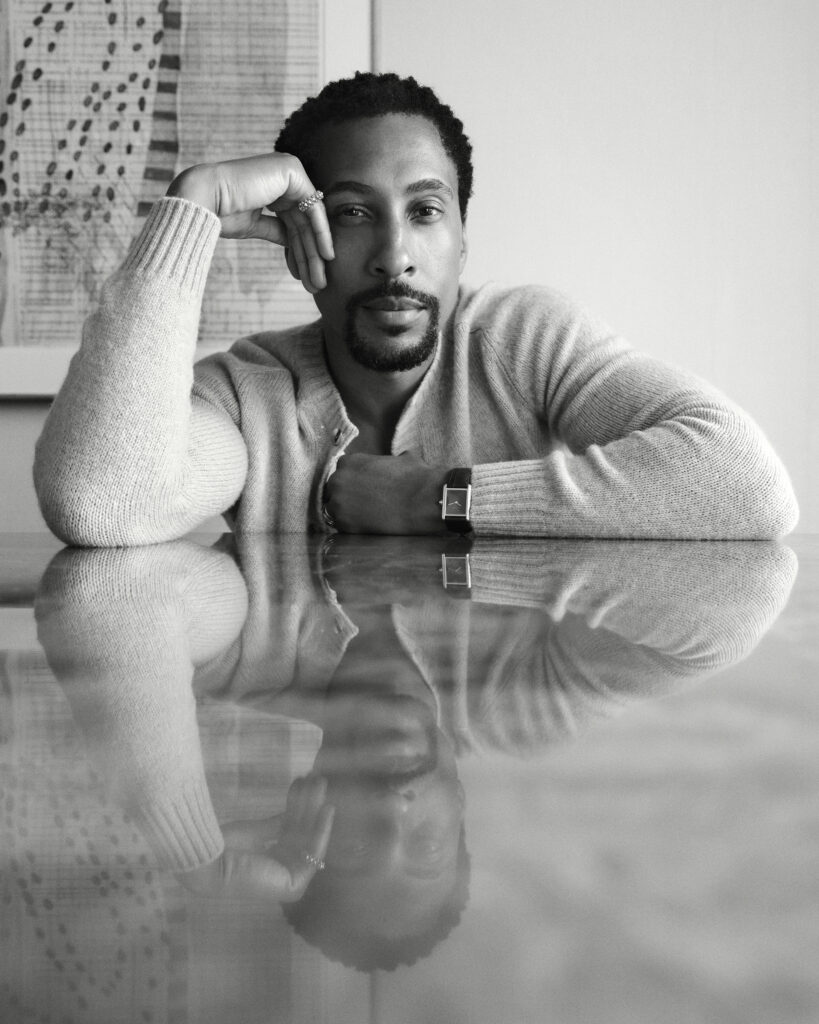
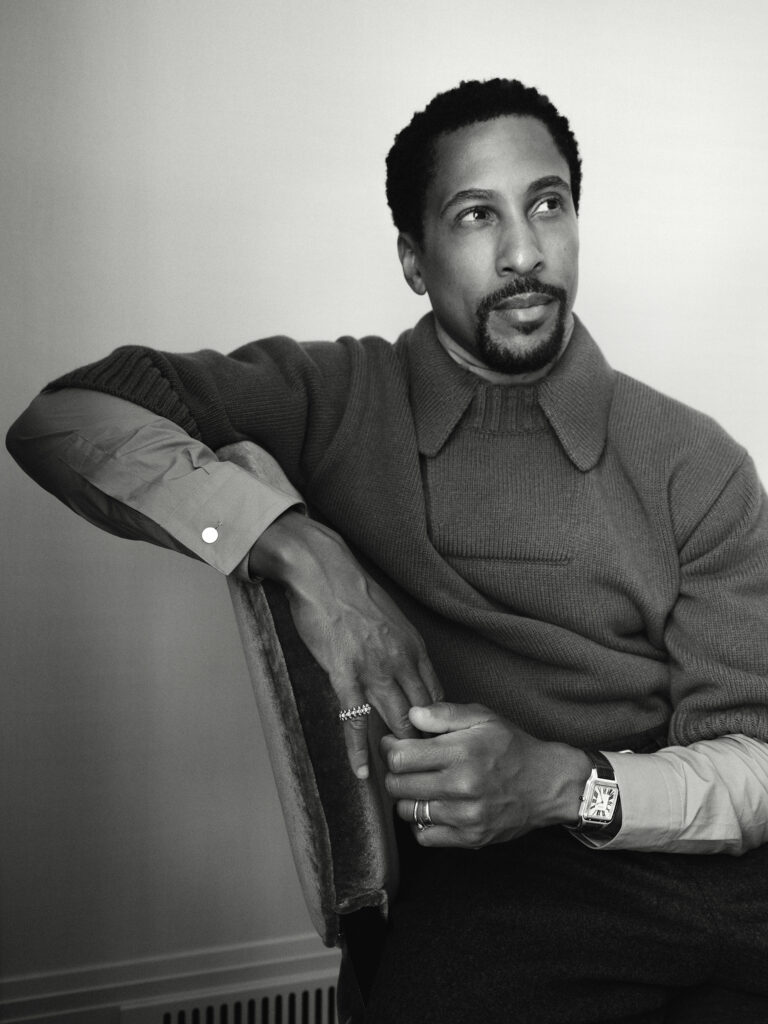
In general, there are two things that draw Jackson to an artist. First is their aptitude for merging the business and creative sides of music. “Trent Reznor from Nine Inch Nails [would] go into executive meetings during the day and be a rockstar at night.” The second is their ability to polarize. “The thing is, no one’s really talking about someone in the middle of the road at a dinner party,” Jackson says. The point, of course, is that great artists don’t blend into the background; they make noise, both literally and figuratively.
Of course, being Larry Jackson has its perks. He’s shaped a great deal of the music you, your parents, and even your kids will hear in their lifetimes. And yet, there he is out at the club with the plebes hearing David Guetta and acting as a kind of cultural anthropologist.
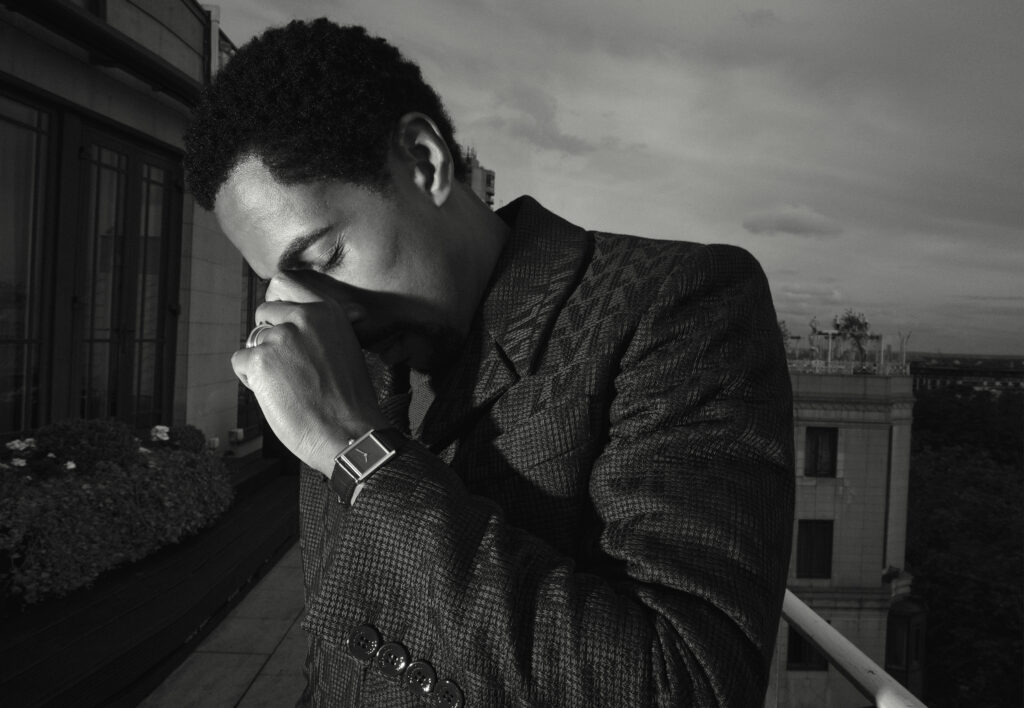
“When people go to a club like the one I was at last night, it’s a very culty, church-like experience,” he says. “People are looking at the DJ as if he’s a pastor, you know? It’s something bigger to believe in than ourselves.”
It’s that feeling of connection, and of studying how to generate it, that keeps Jackson inspired. Yet for someone who’s made a living off of predictions, Jackson himself is fundamentally unpredictable. With that kind of Avante-garde approach to business and to artistry, Jackson—and gamma—have become the definition of innovation: No one knows what they’re going to do next, but what we’re sure of is they will be unpredictable, inventive, and built for the ups and downs of a difficult, if dynamic business. No matter the currents, the industry titan is sure to navigate them with ease. Embracing the changing weather has always been his superpower.
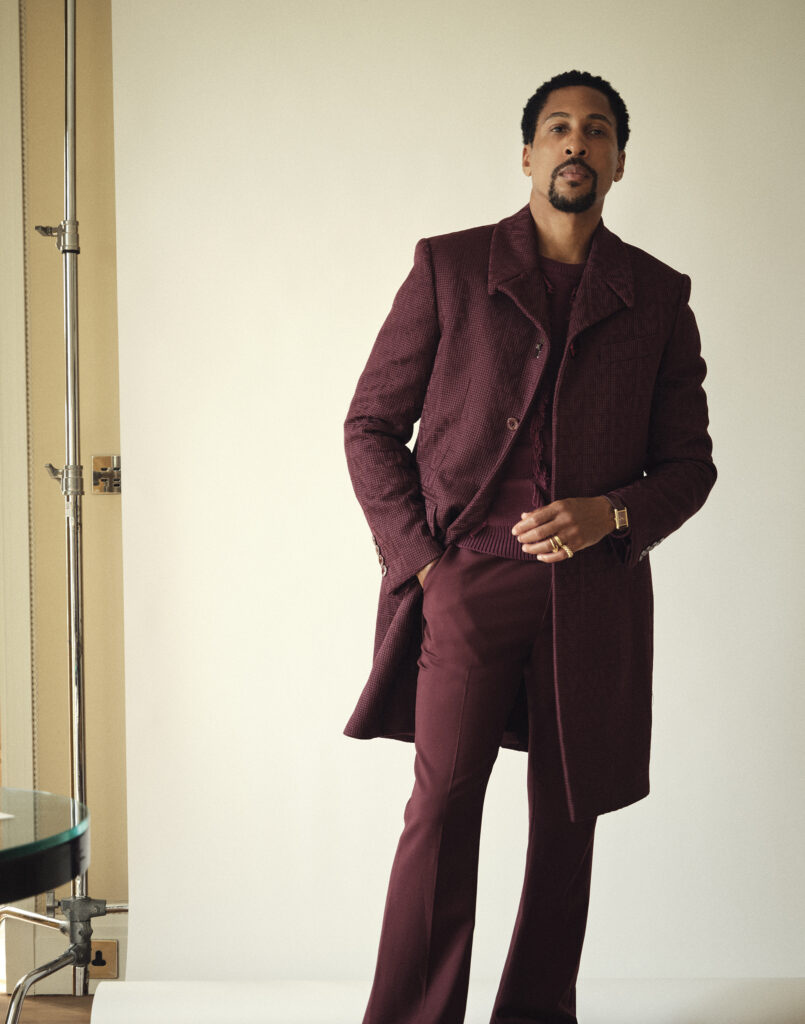
“The winds are always going to change,” Jackson concludes. “That’s as certain as the sun going down tonight and then coming back up tomorrow.”
This story appears in the pages of VMAN 51: now available for purchase!
Photography Marc Hibbert
Fashion Gro Curtis
Stylist Aurelie Mason-Perez
Grooming Tomi Roppongi (Julian Watson)
Executive producer Belinda Foord (Shiny Projects)
Production Isabella Akers (Shiny Projects)
Producer Ian McCray Martin (Shiny Projects)
Photo assistants Ivano Pagnussat, Tom Porter
Stylist assistant Ava Miller
Location The Dorchester
Discover More







